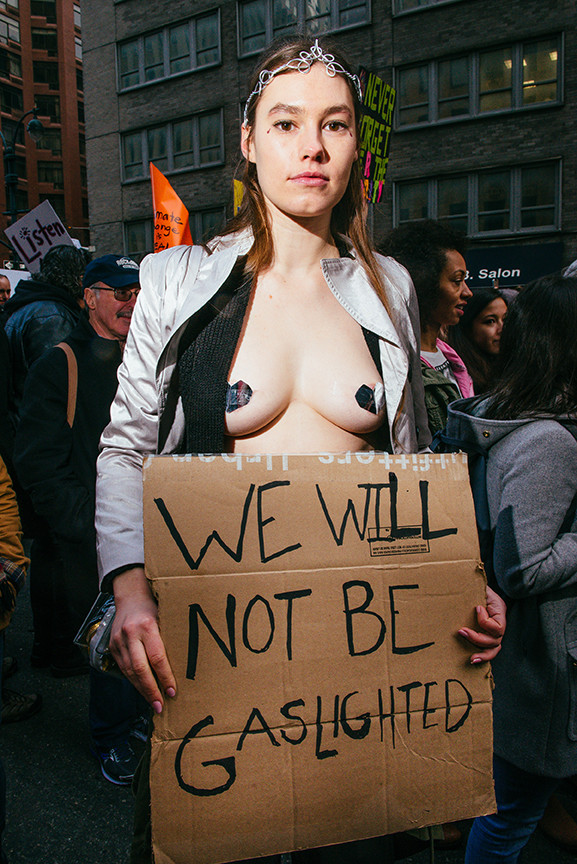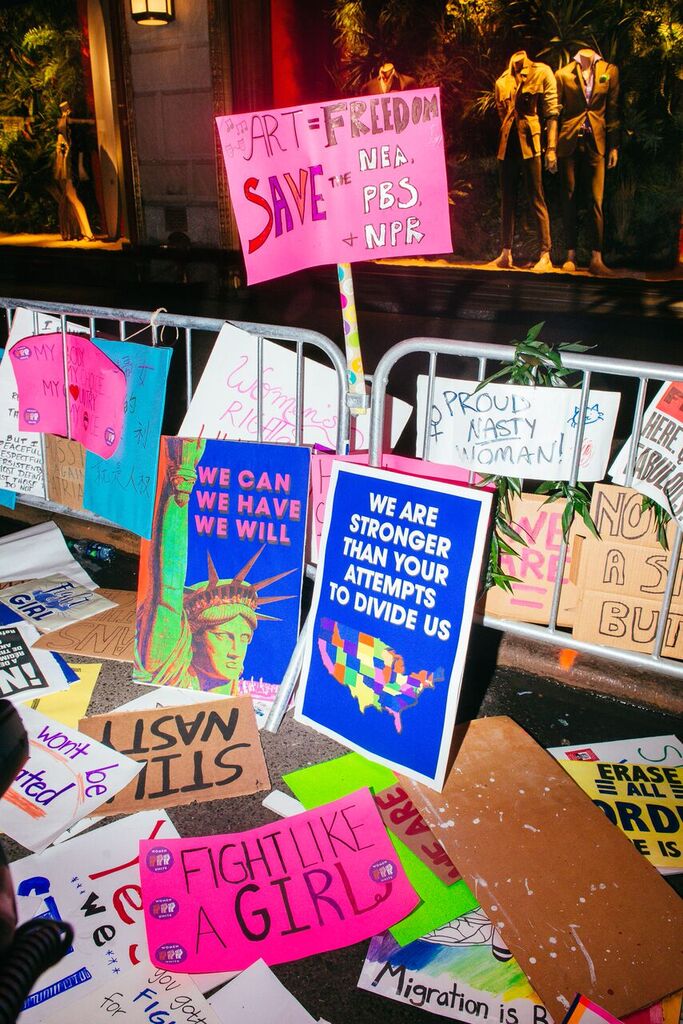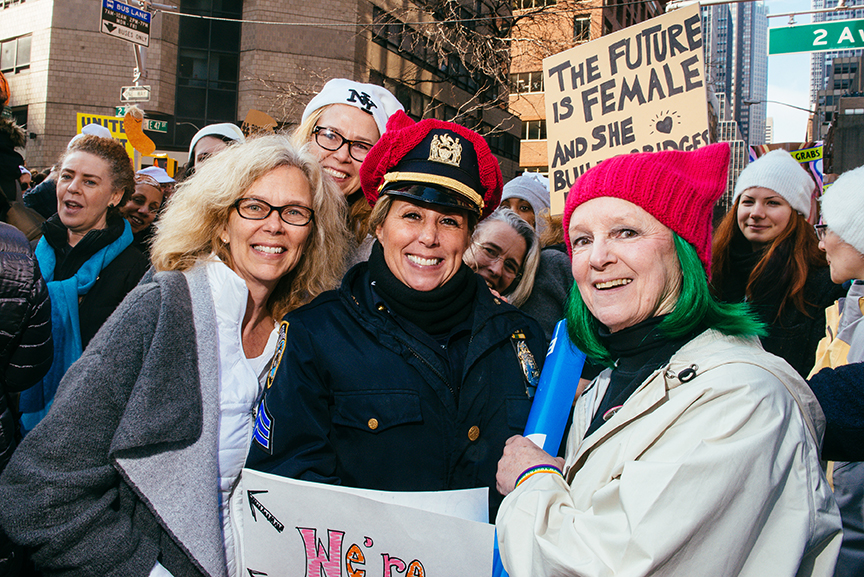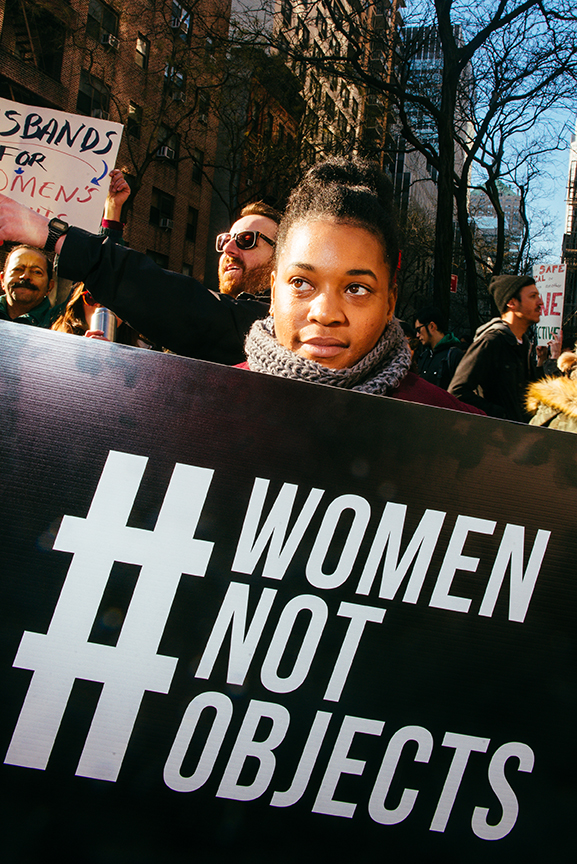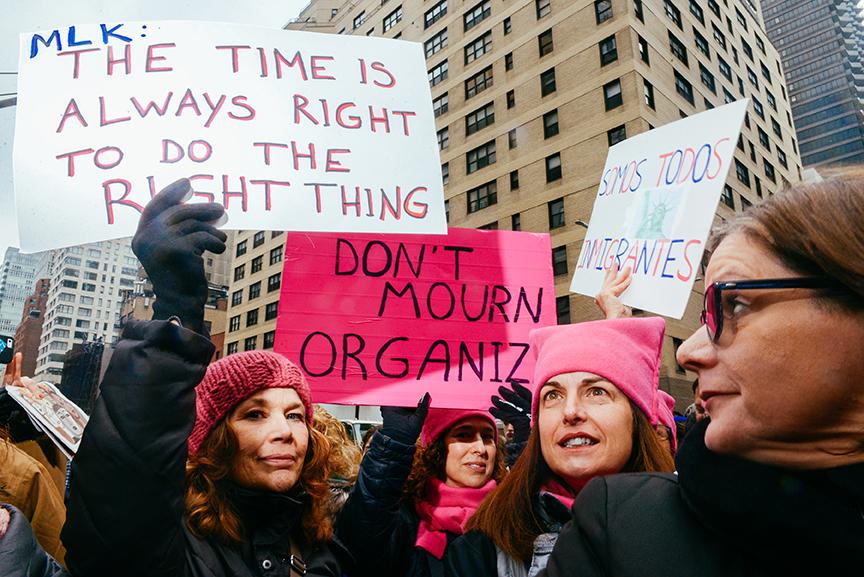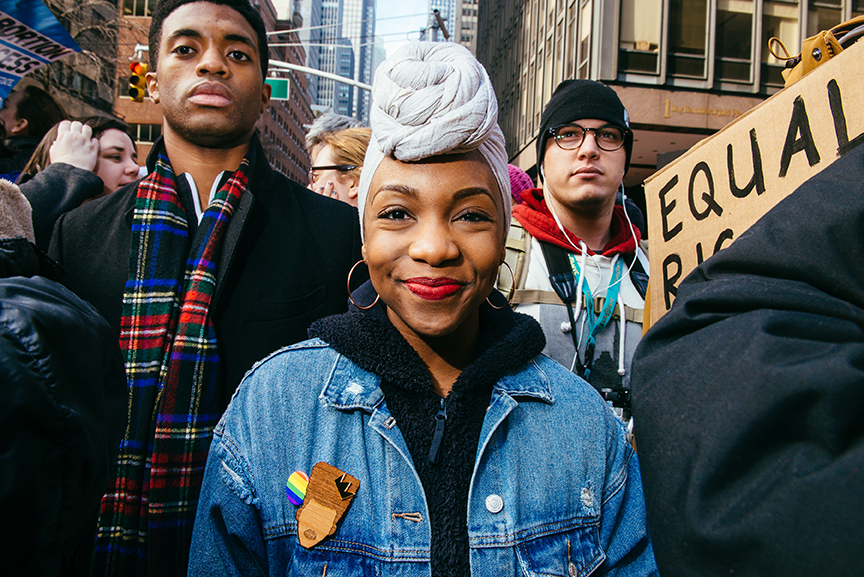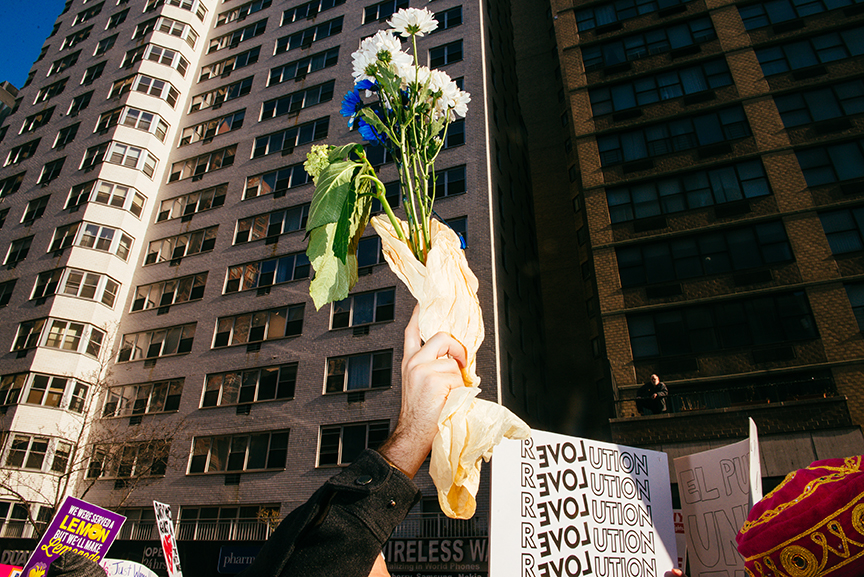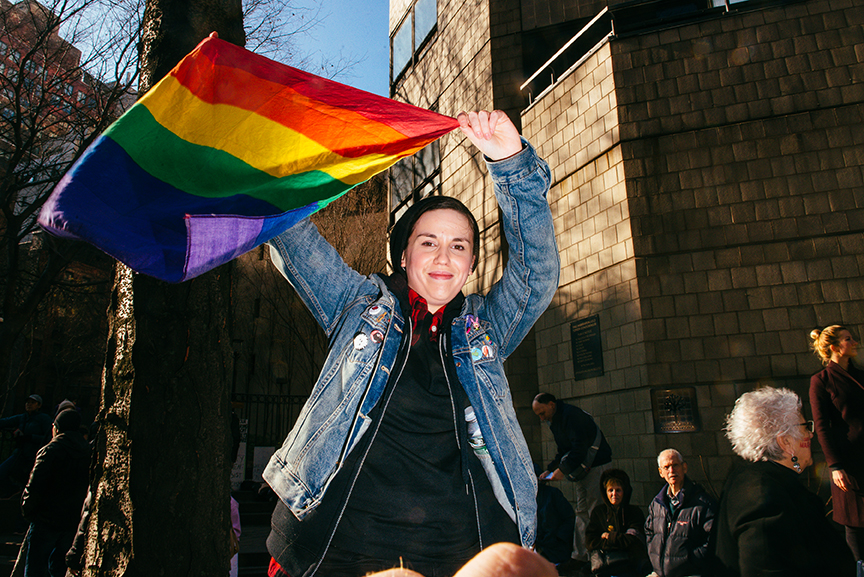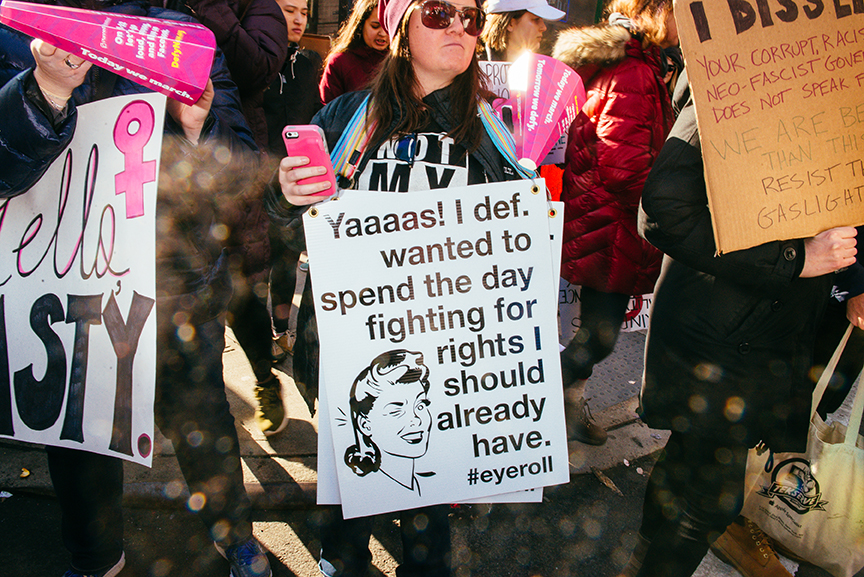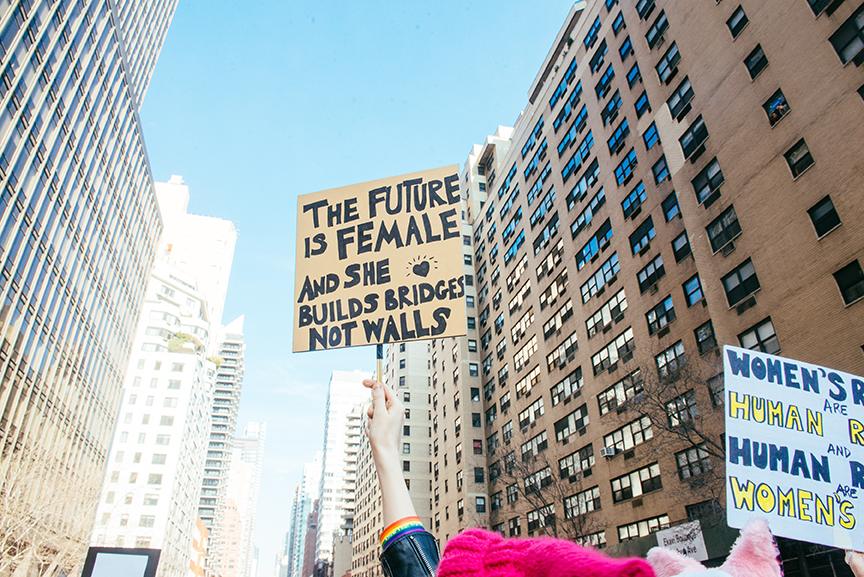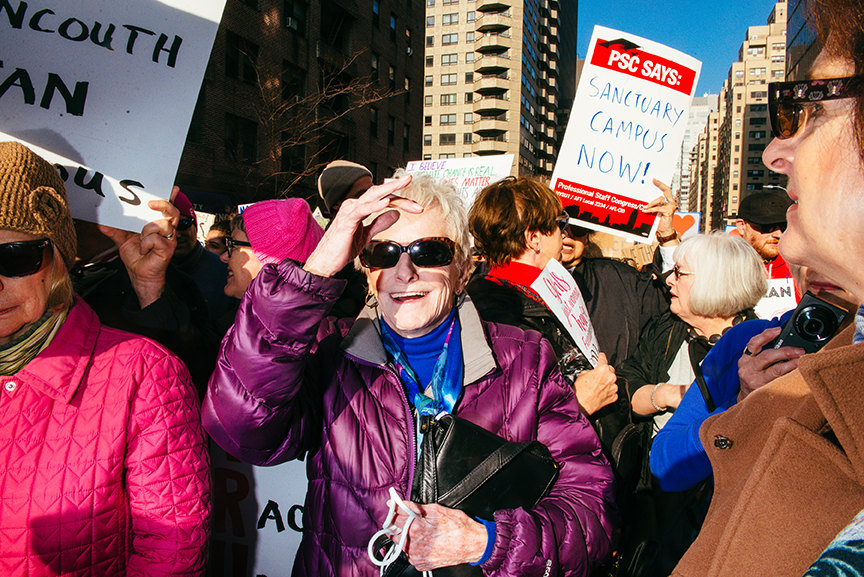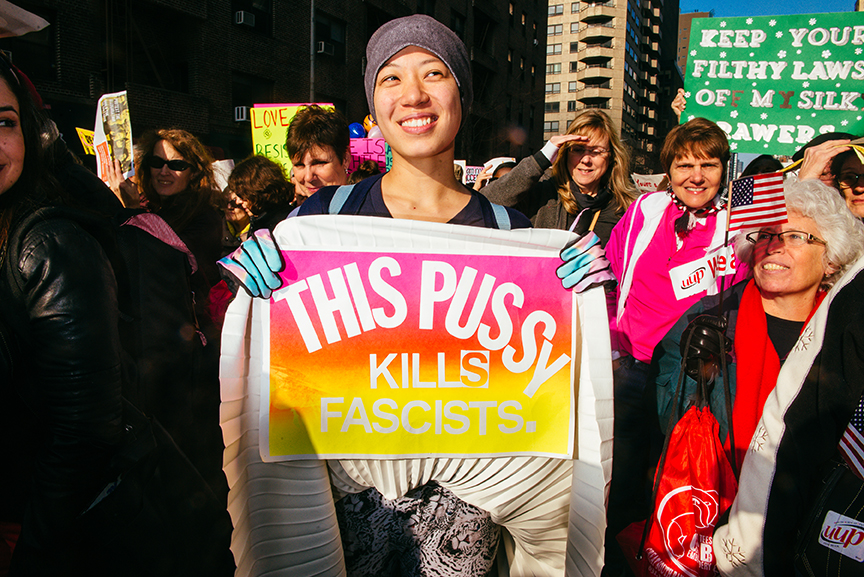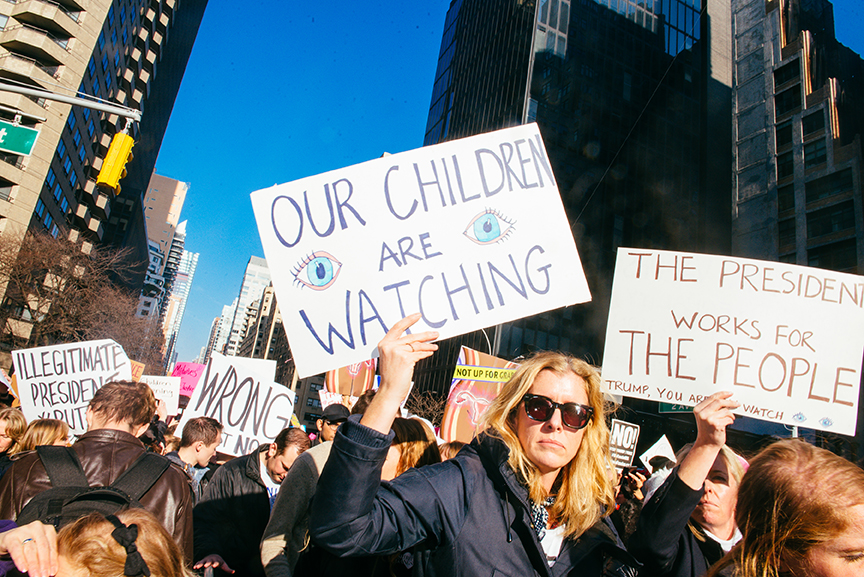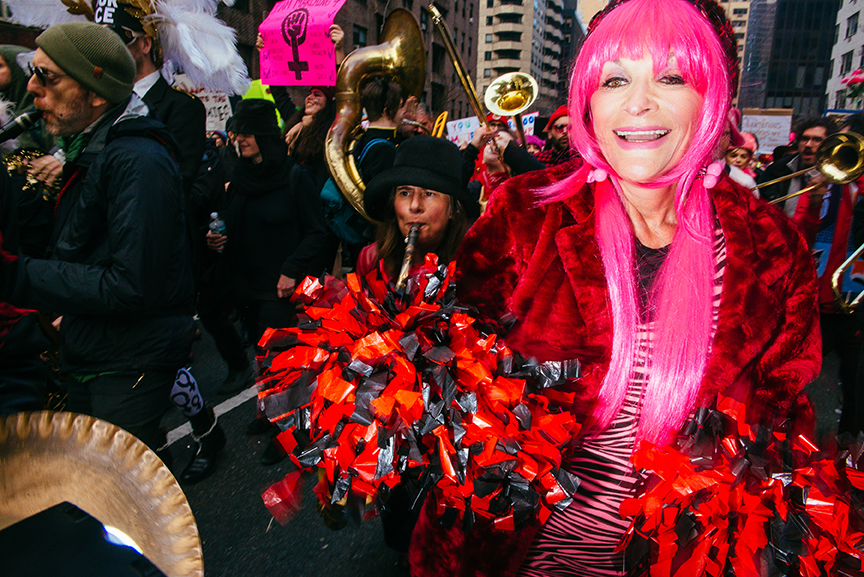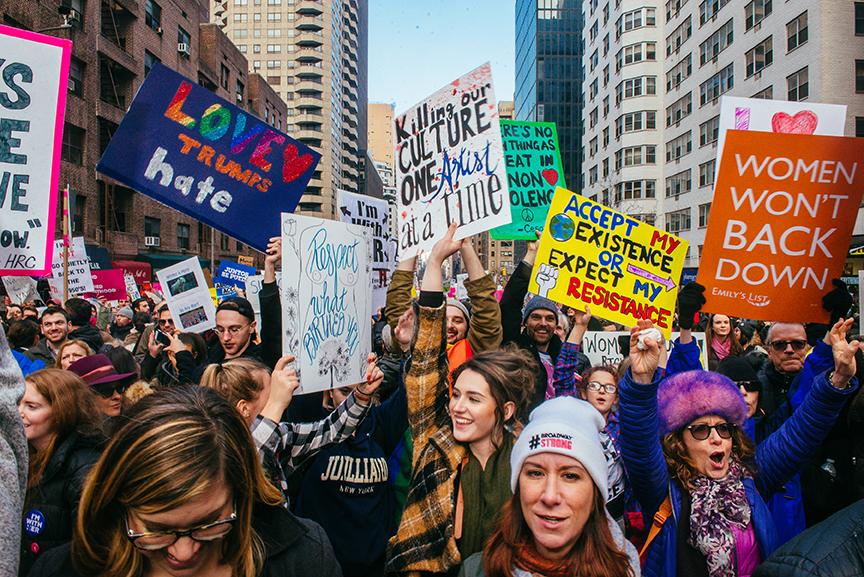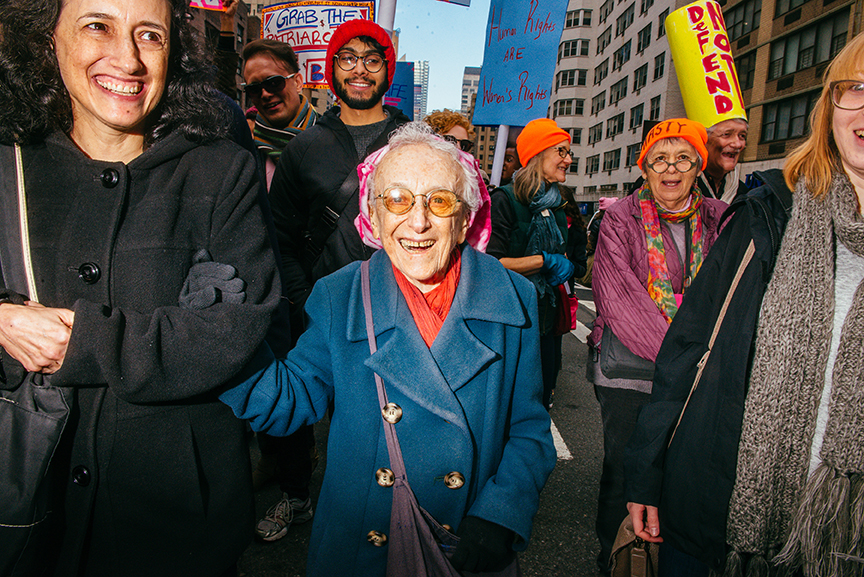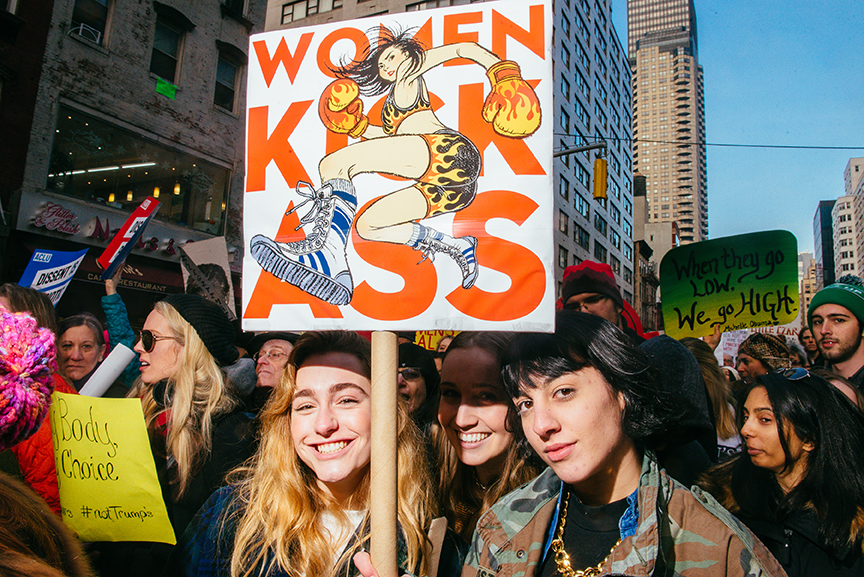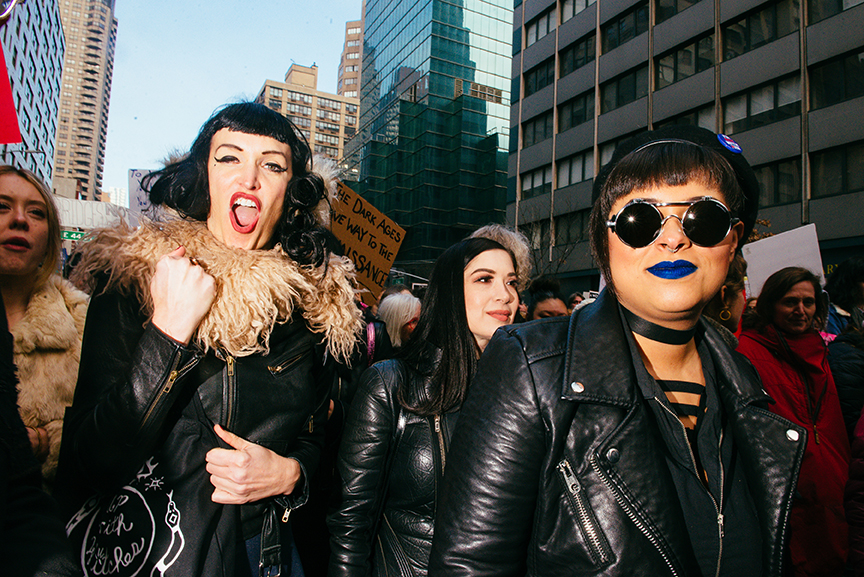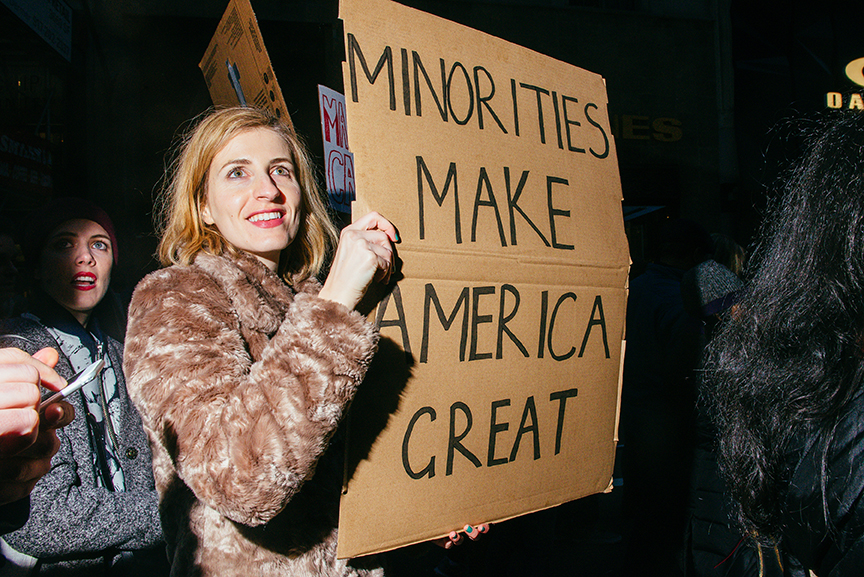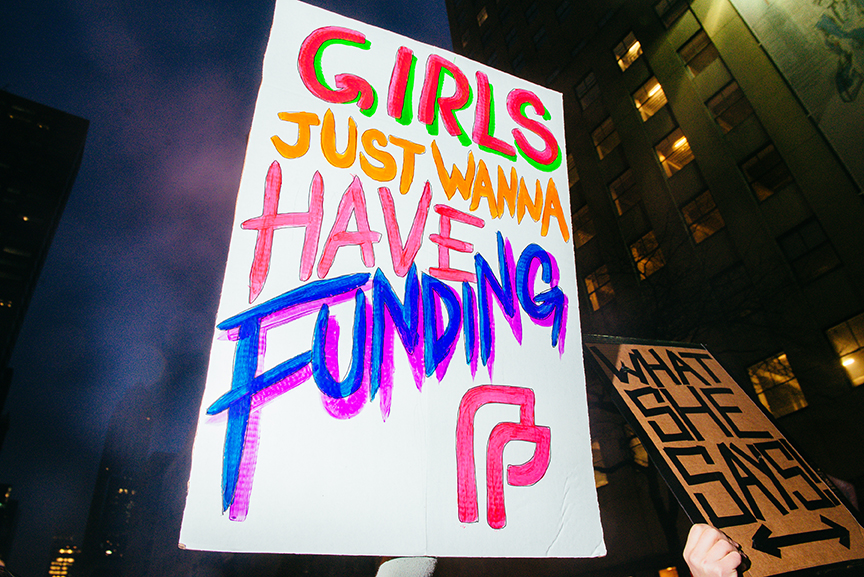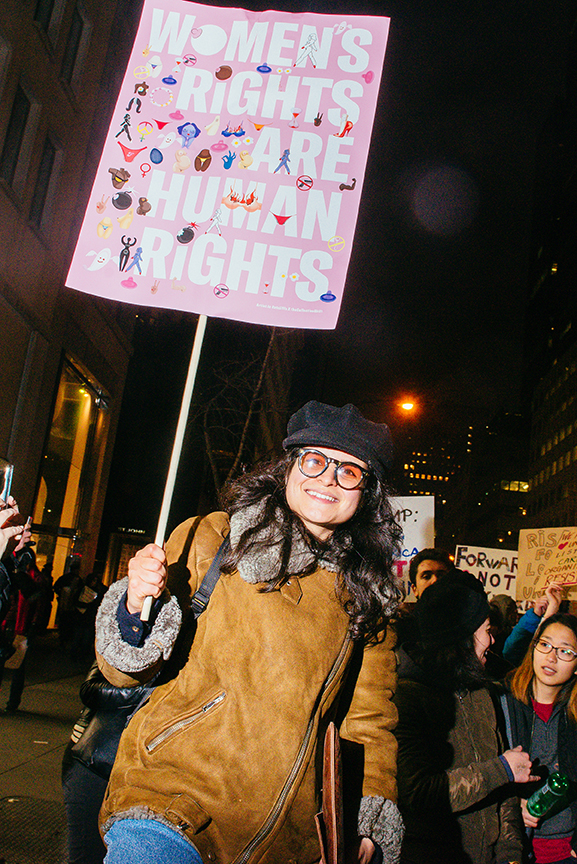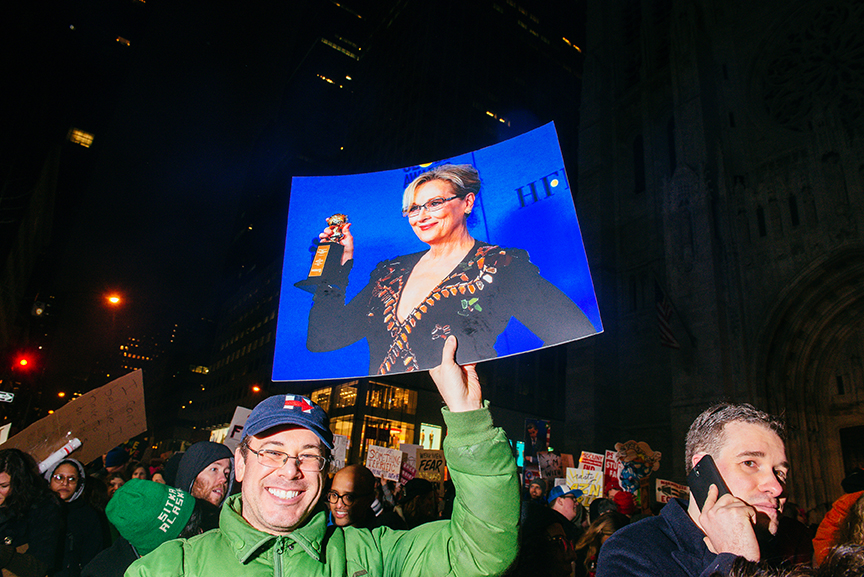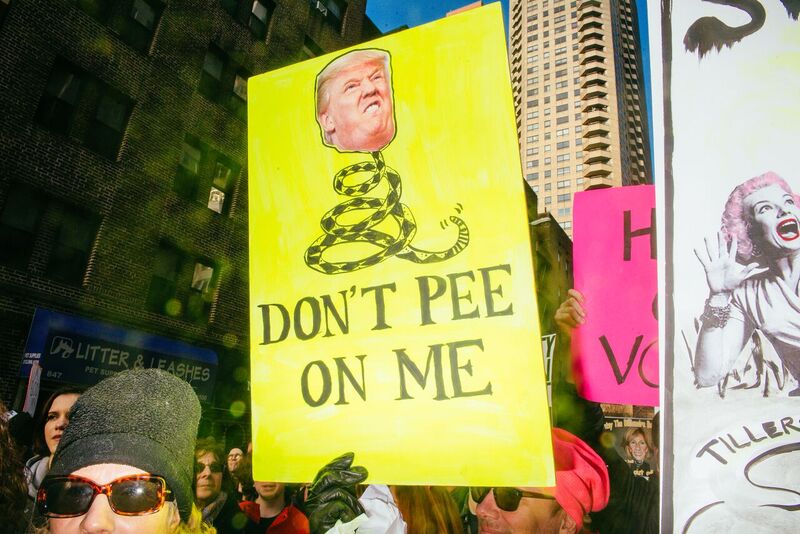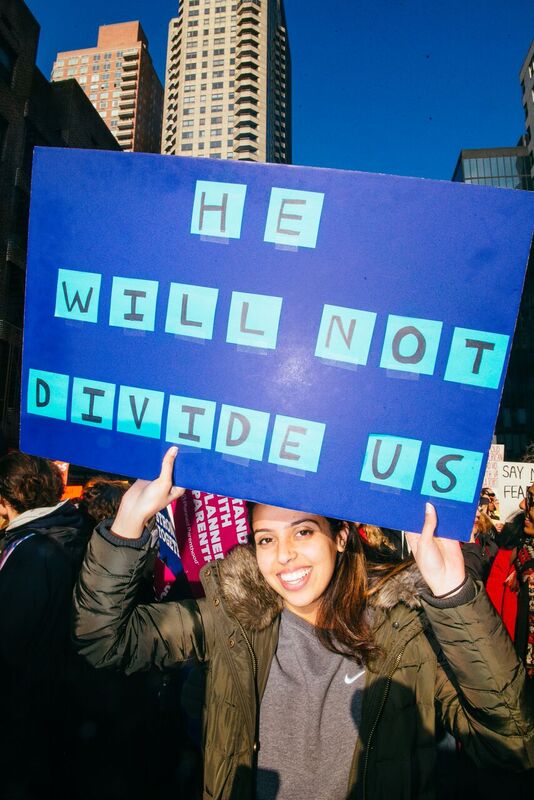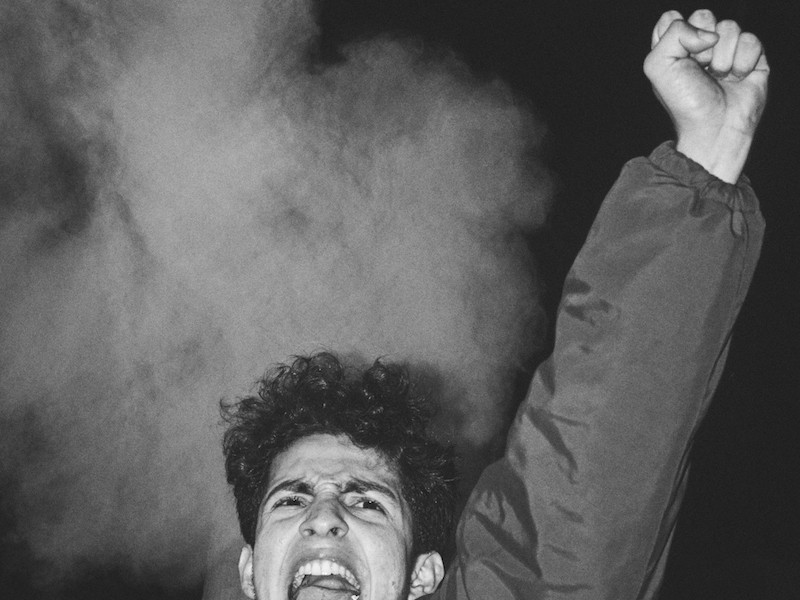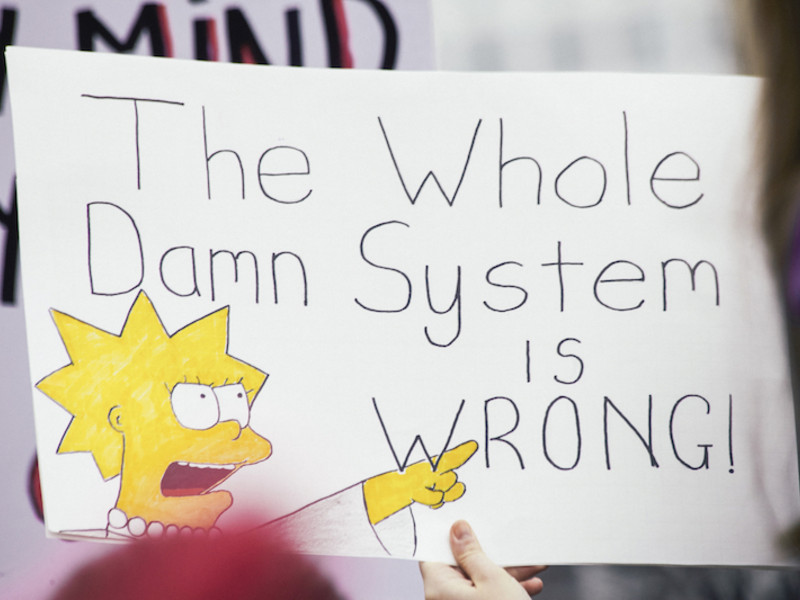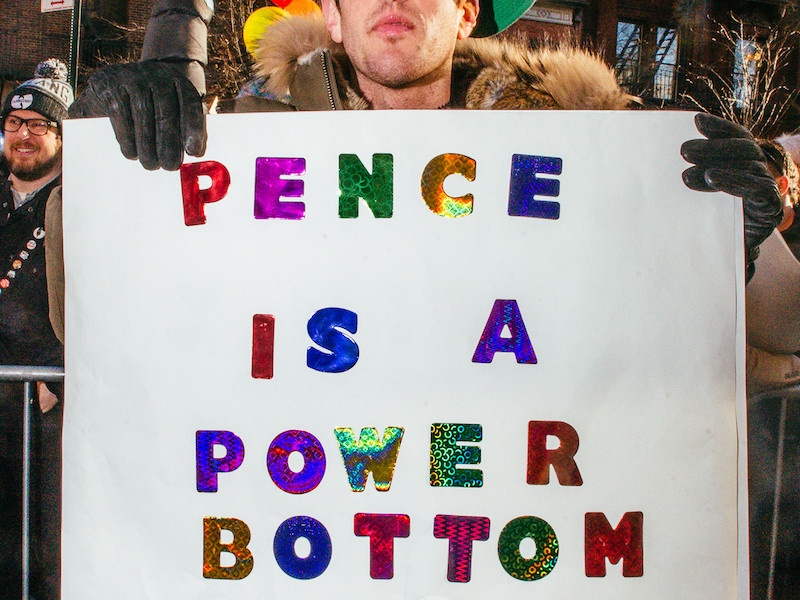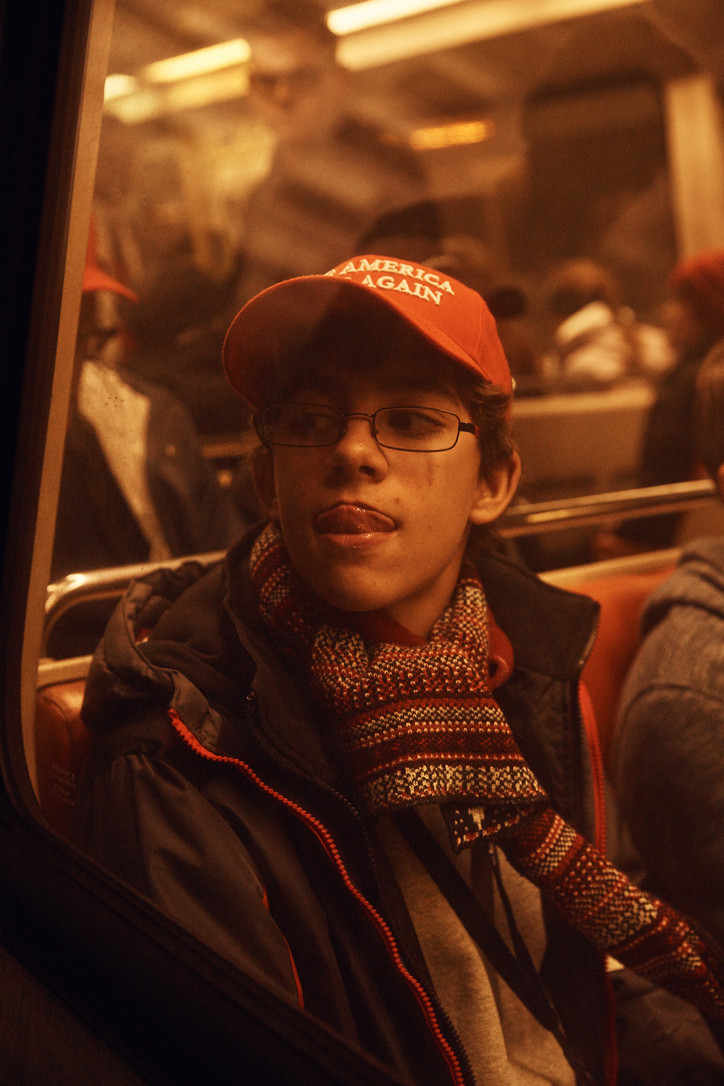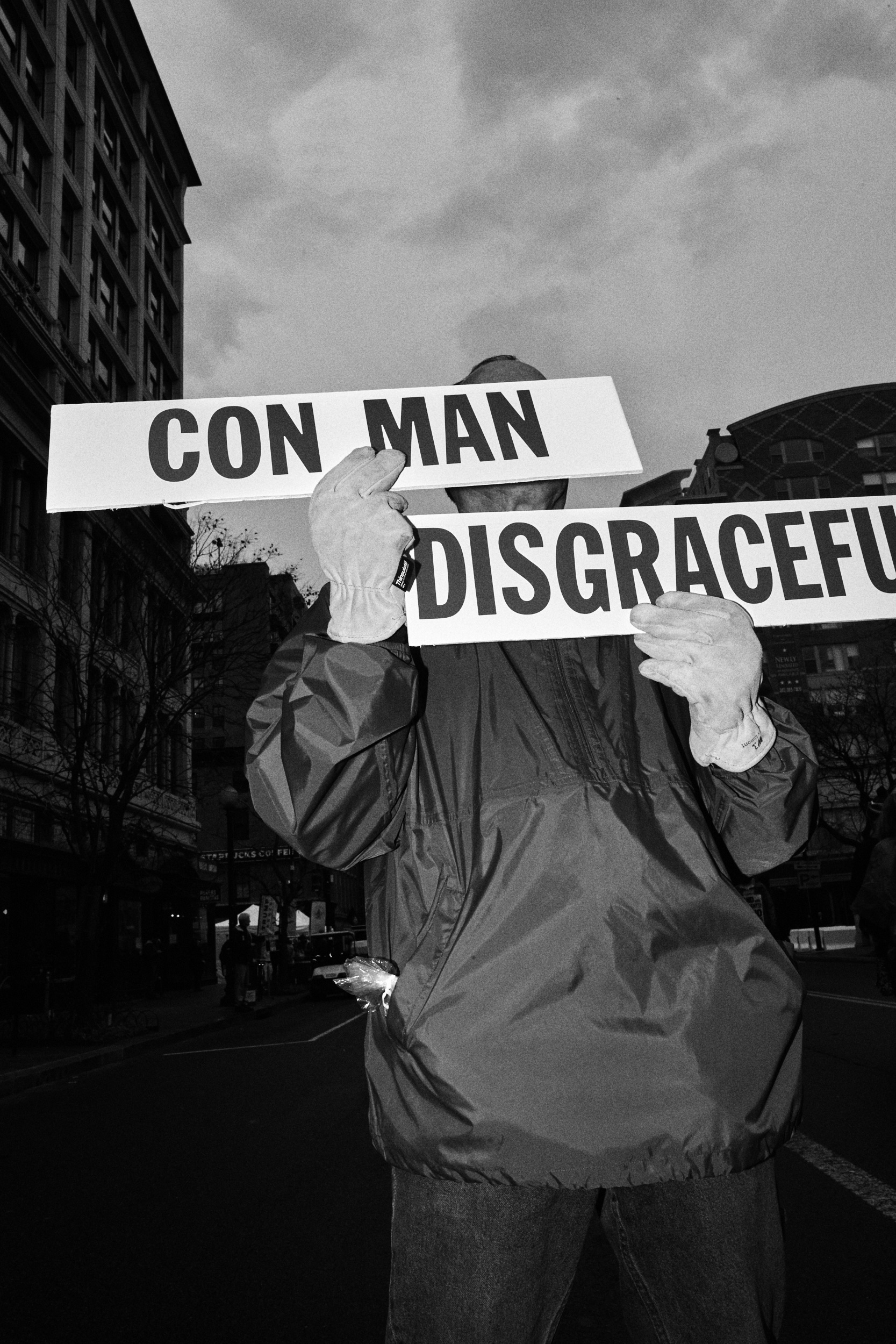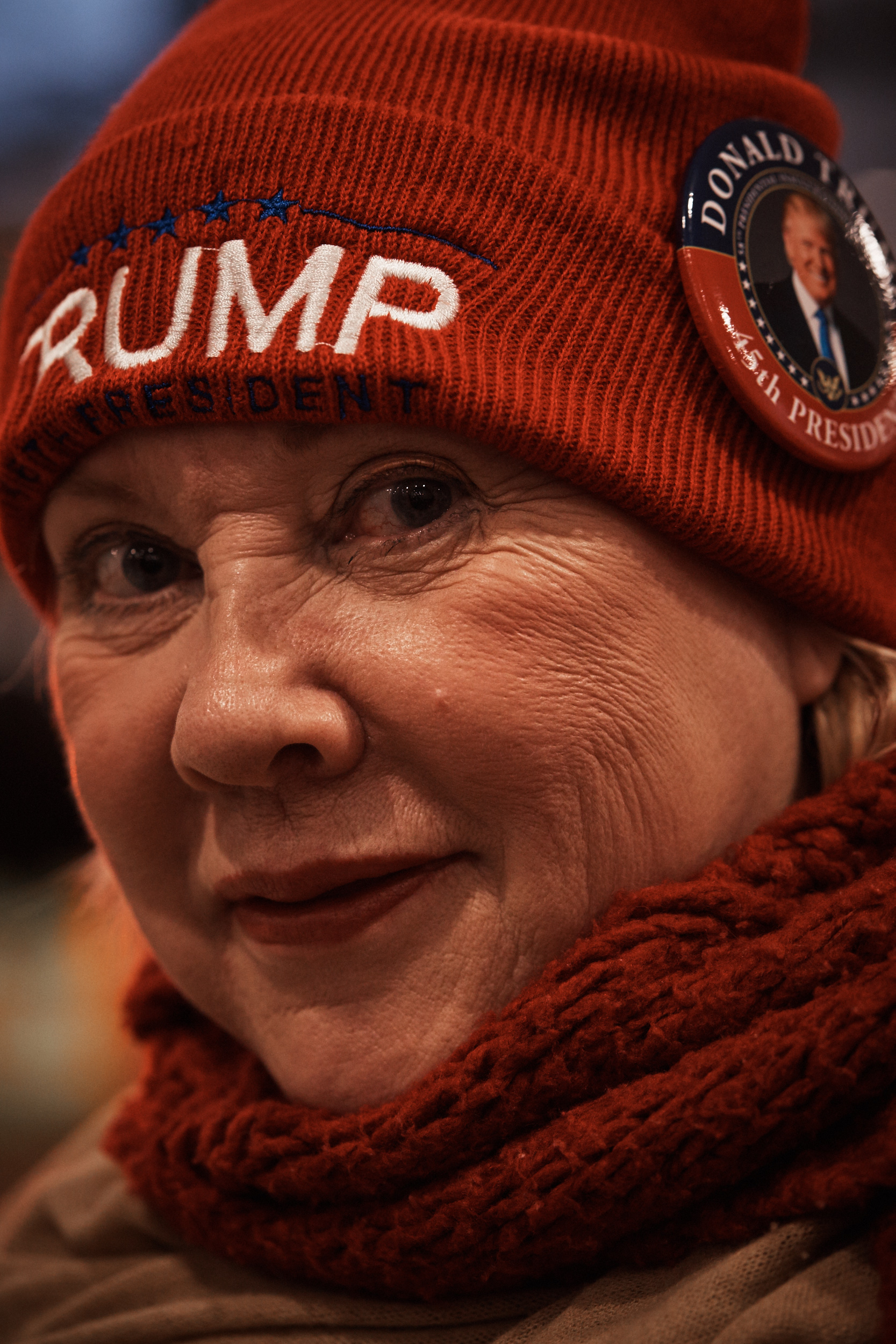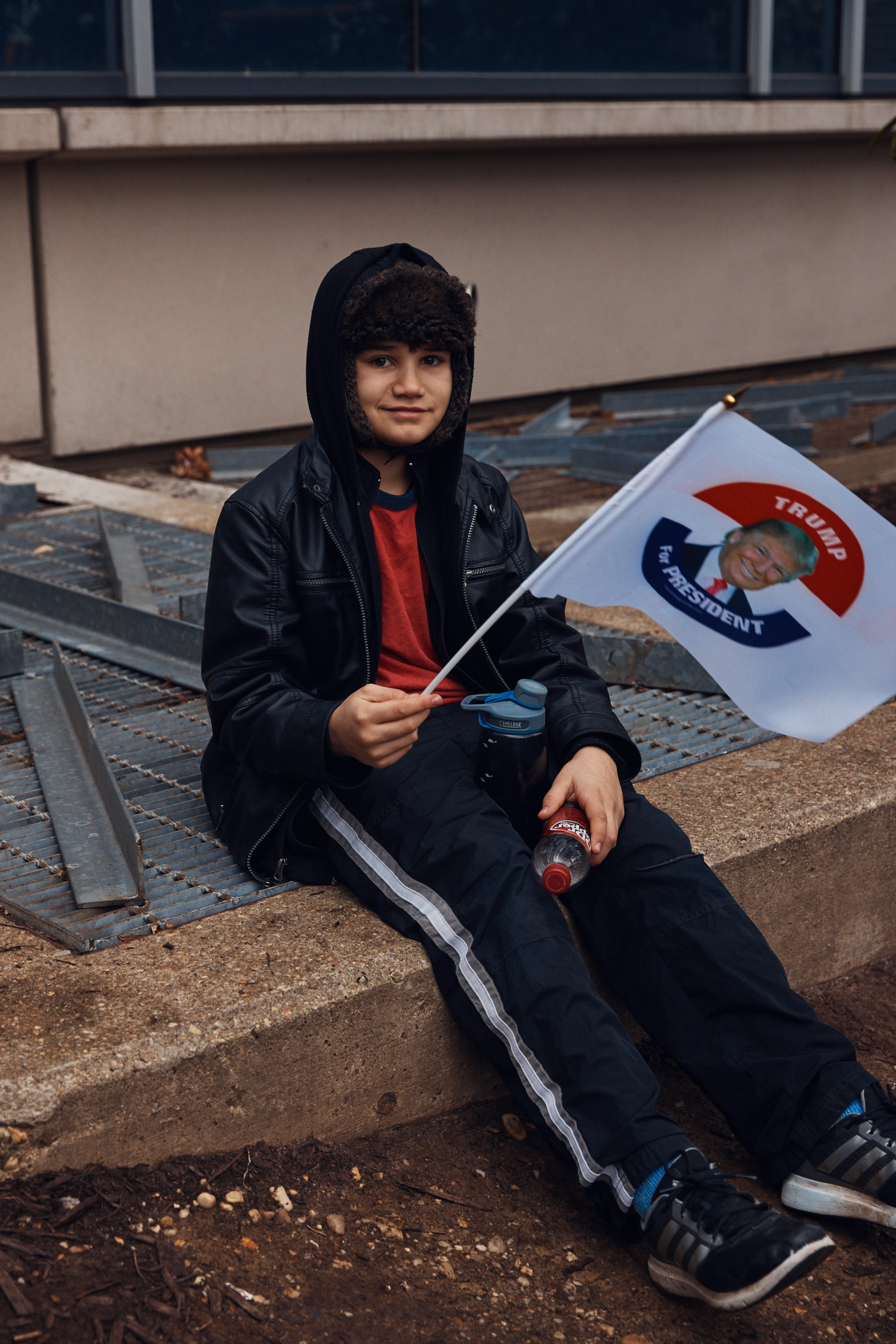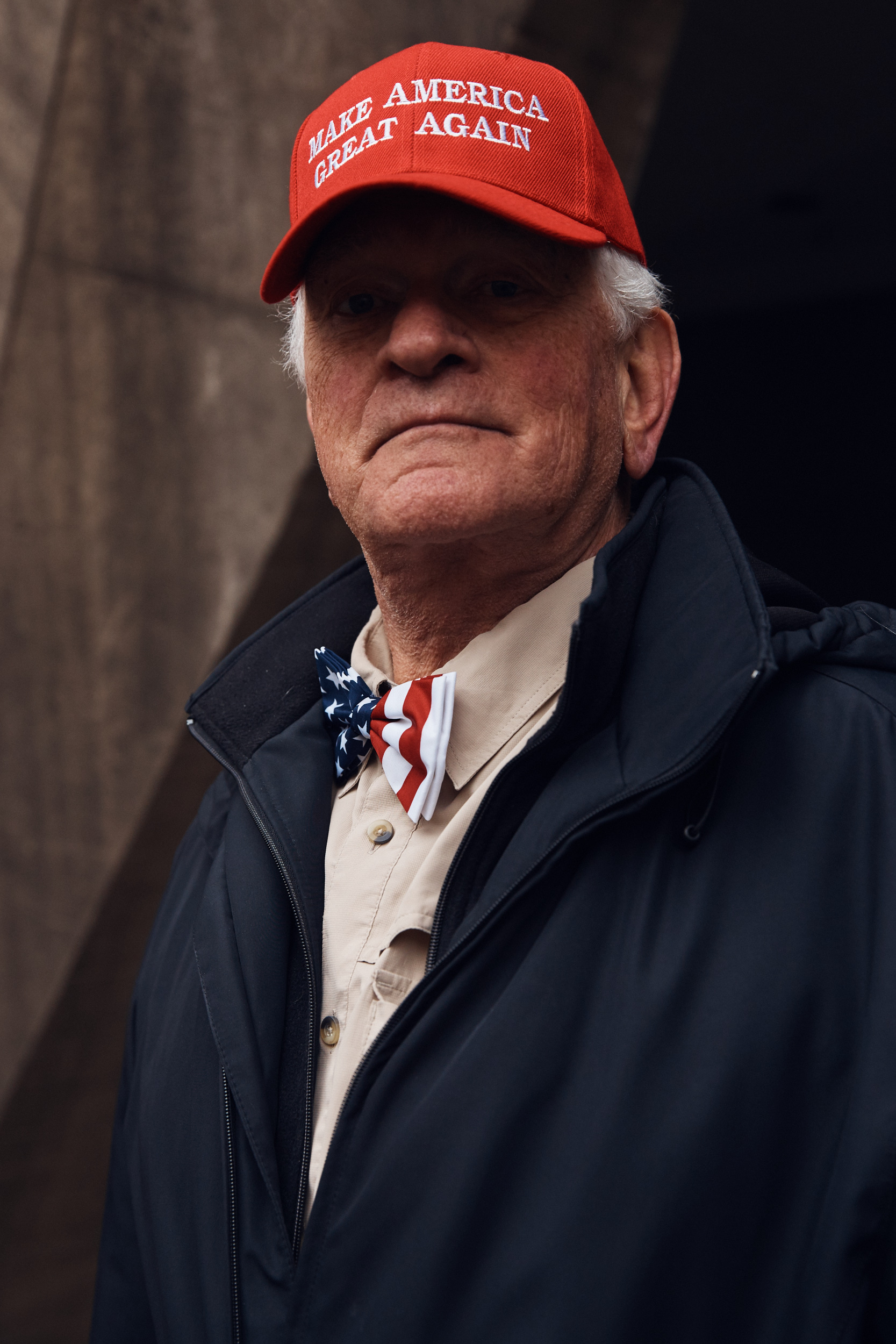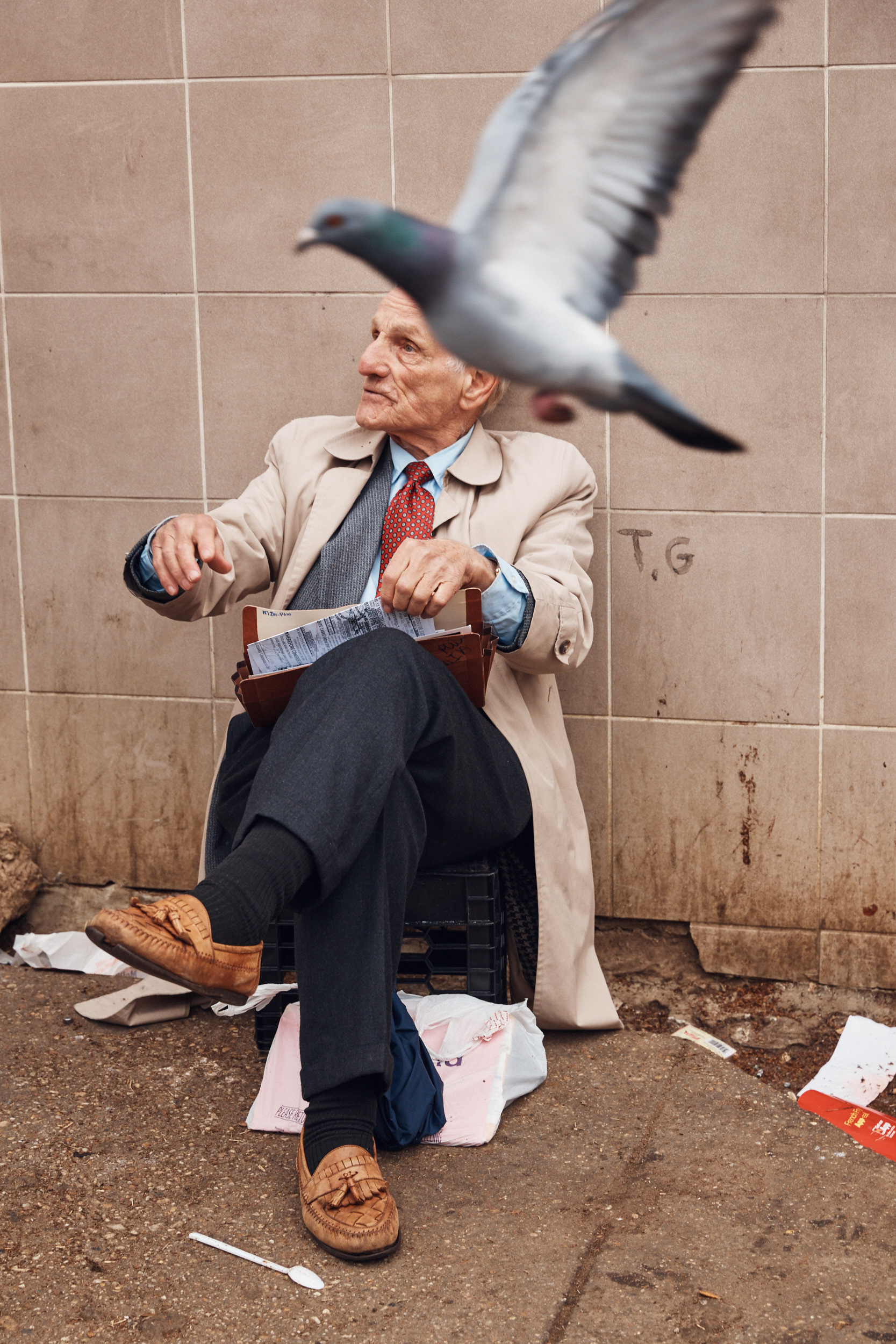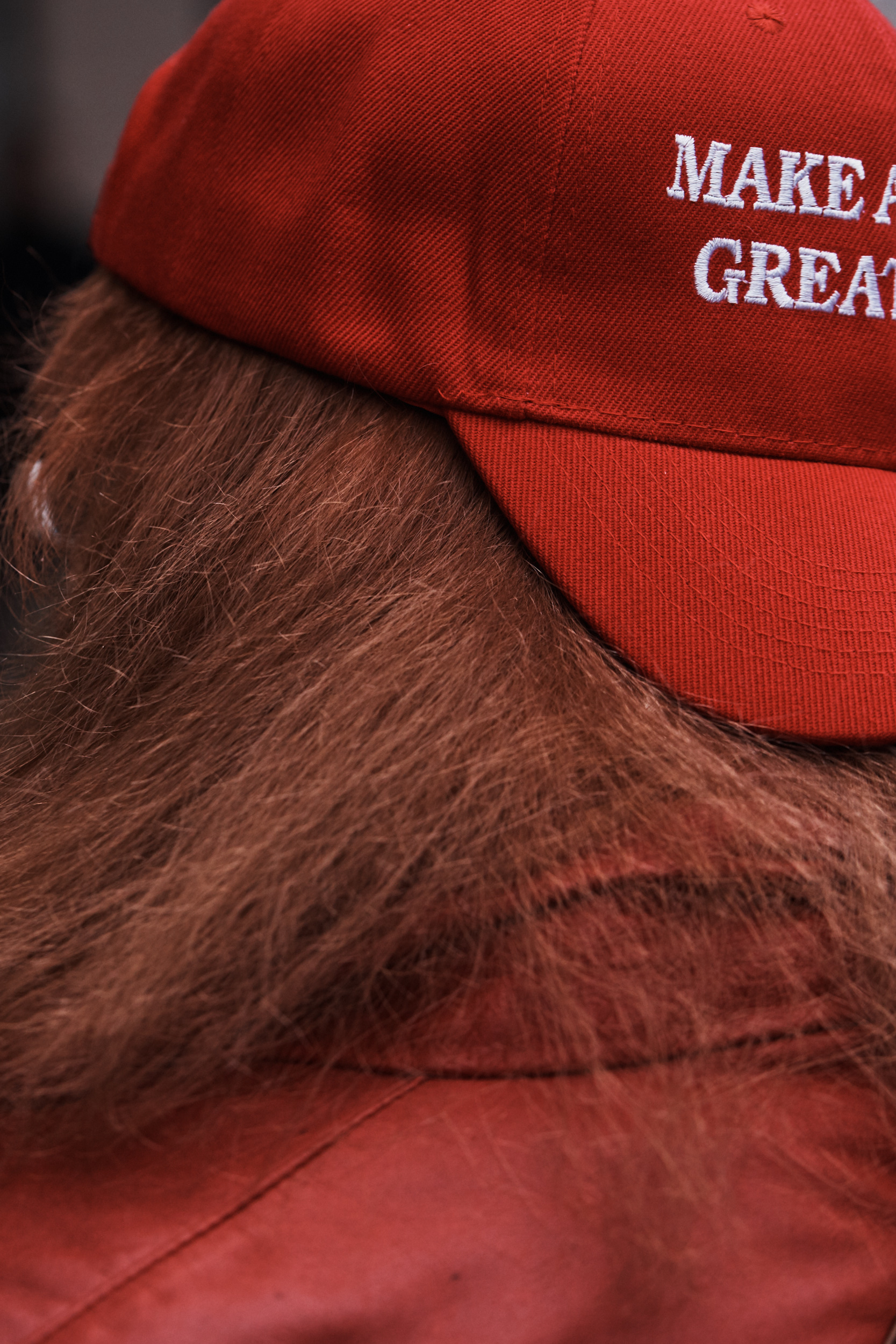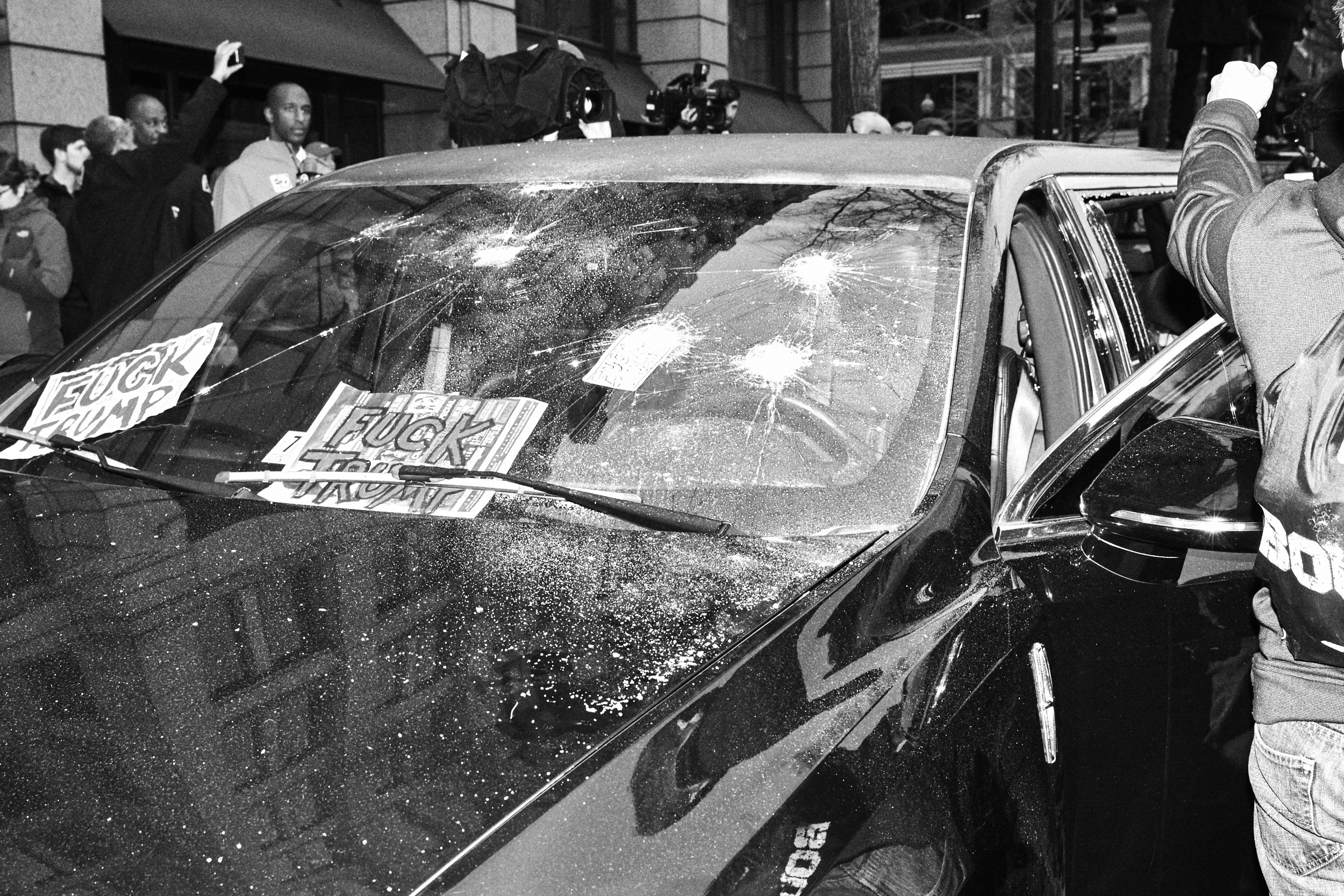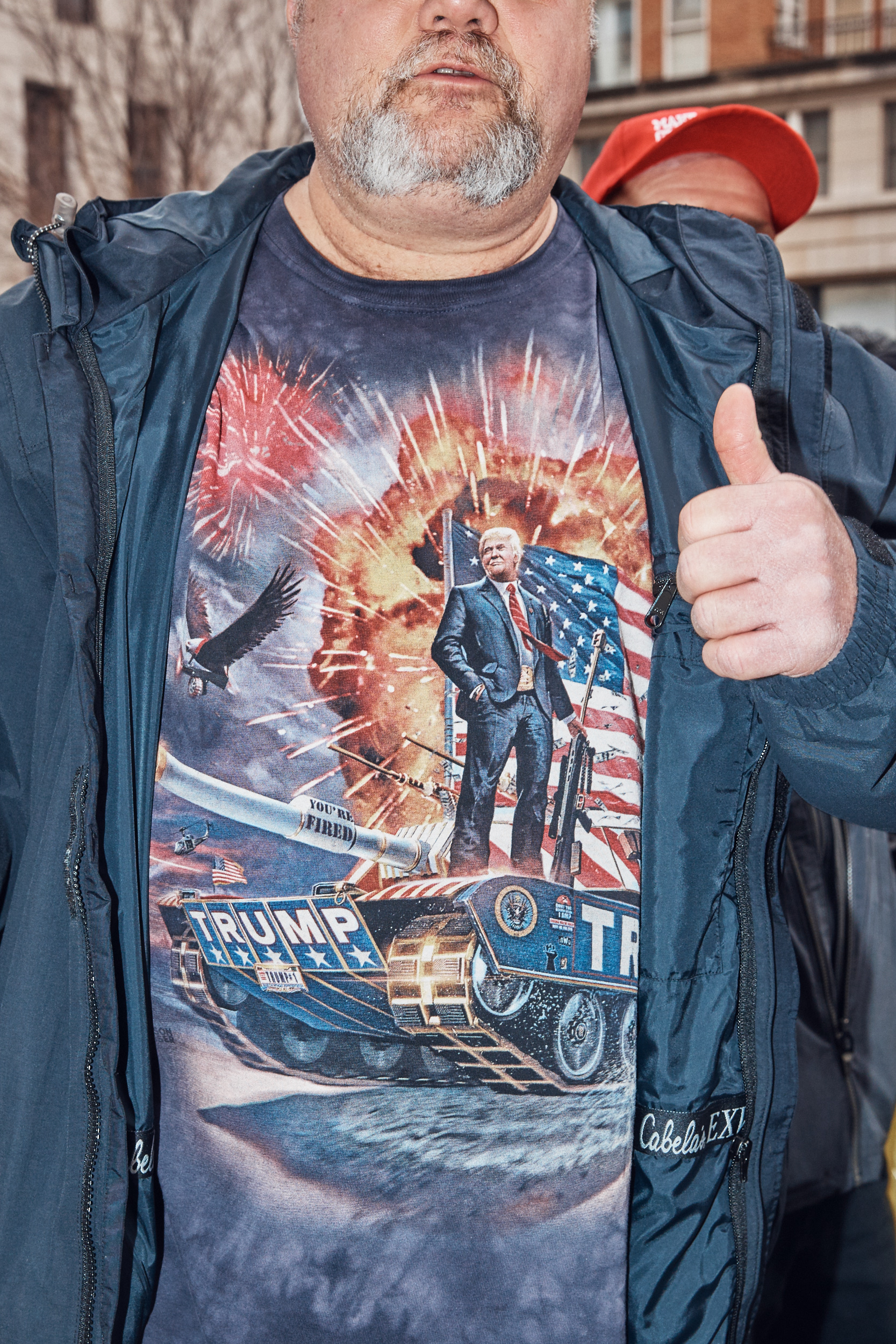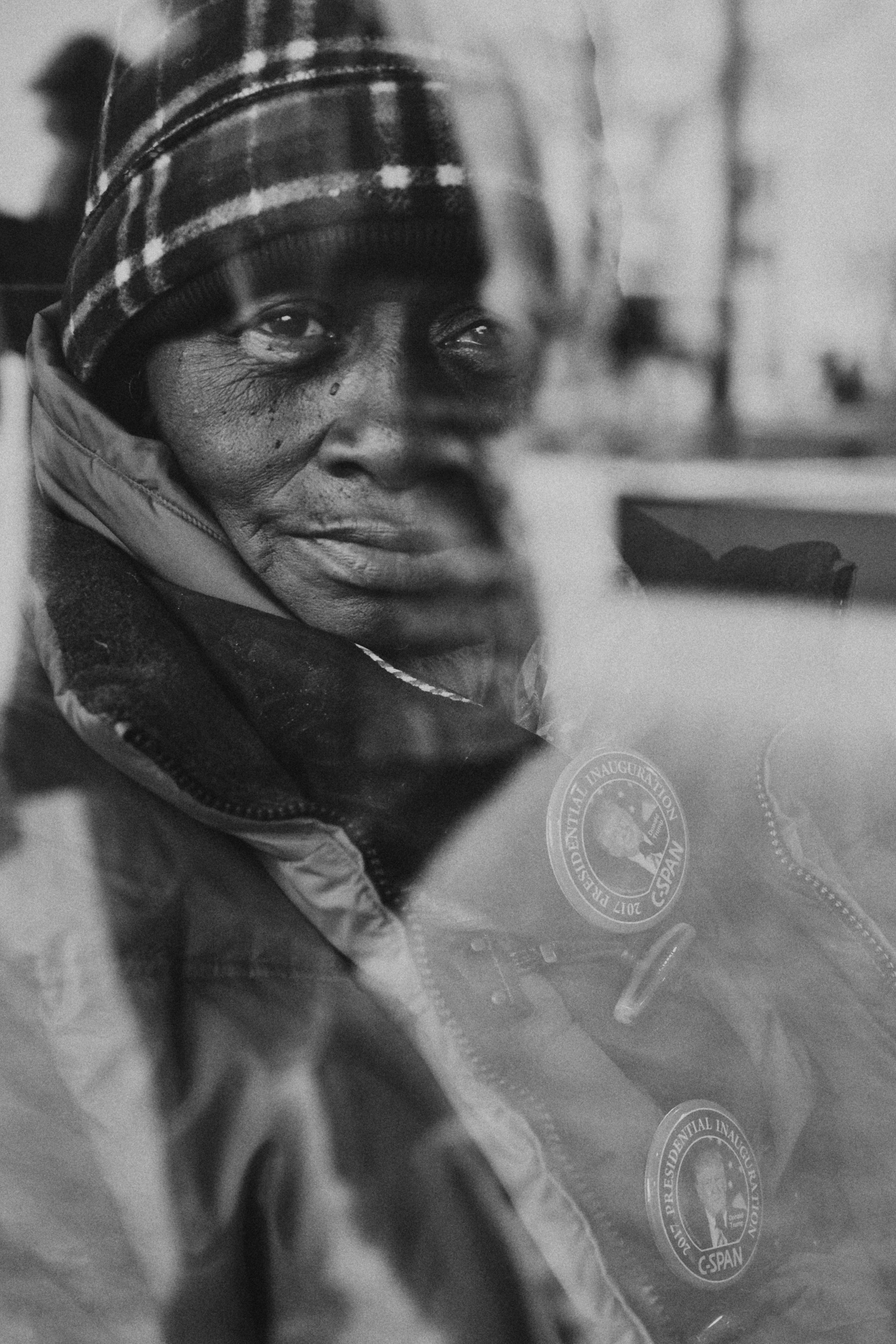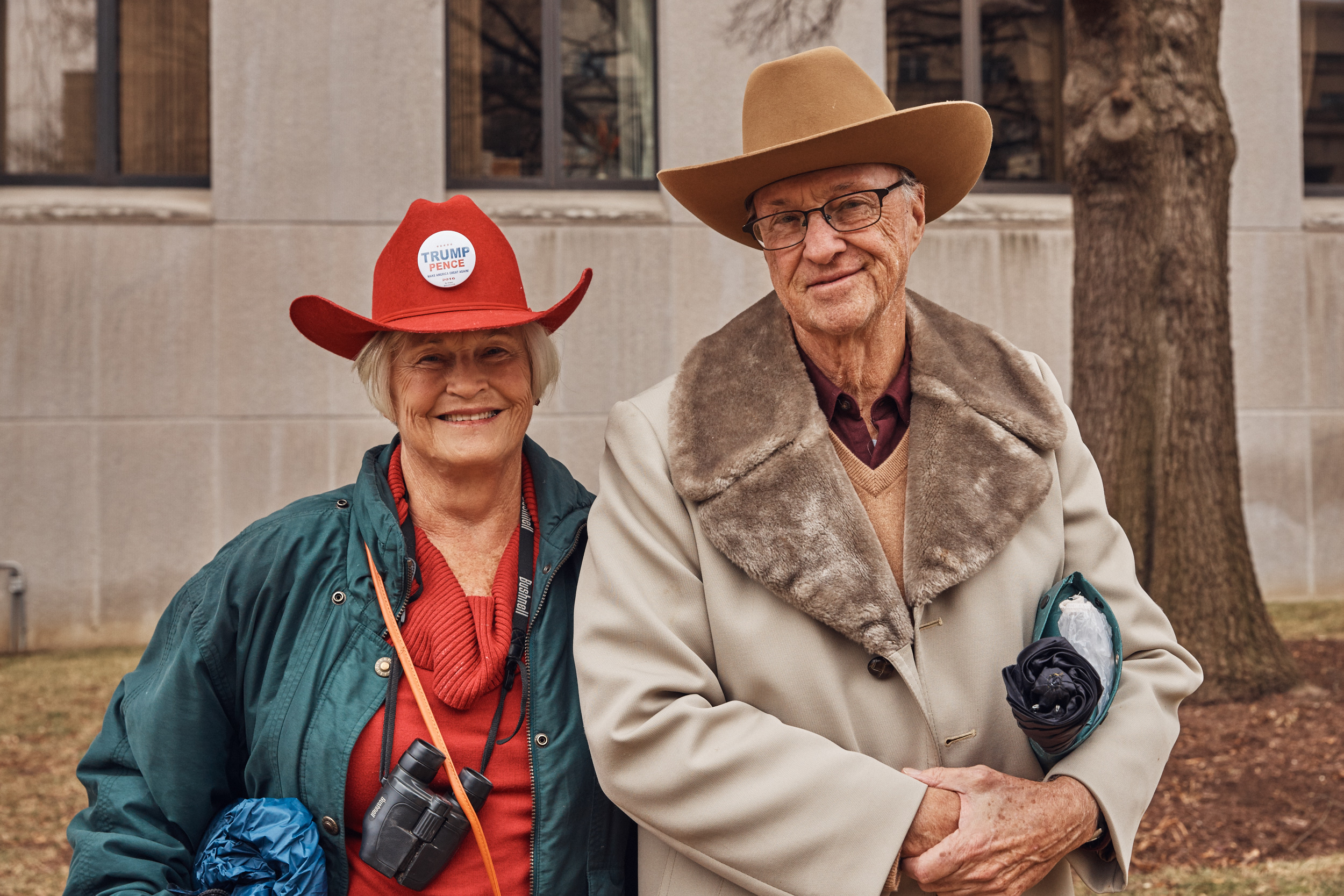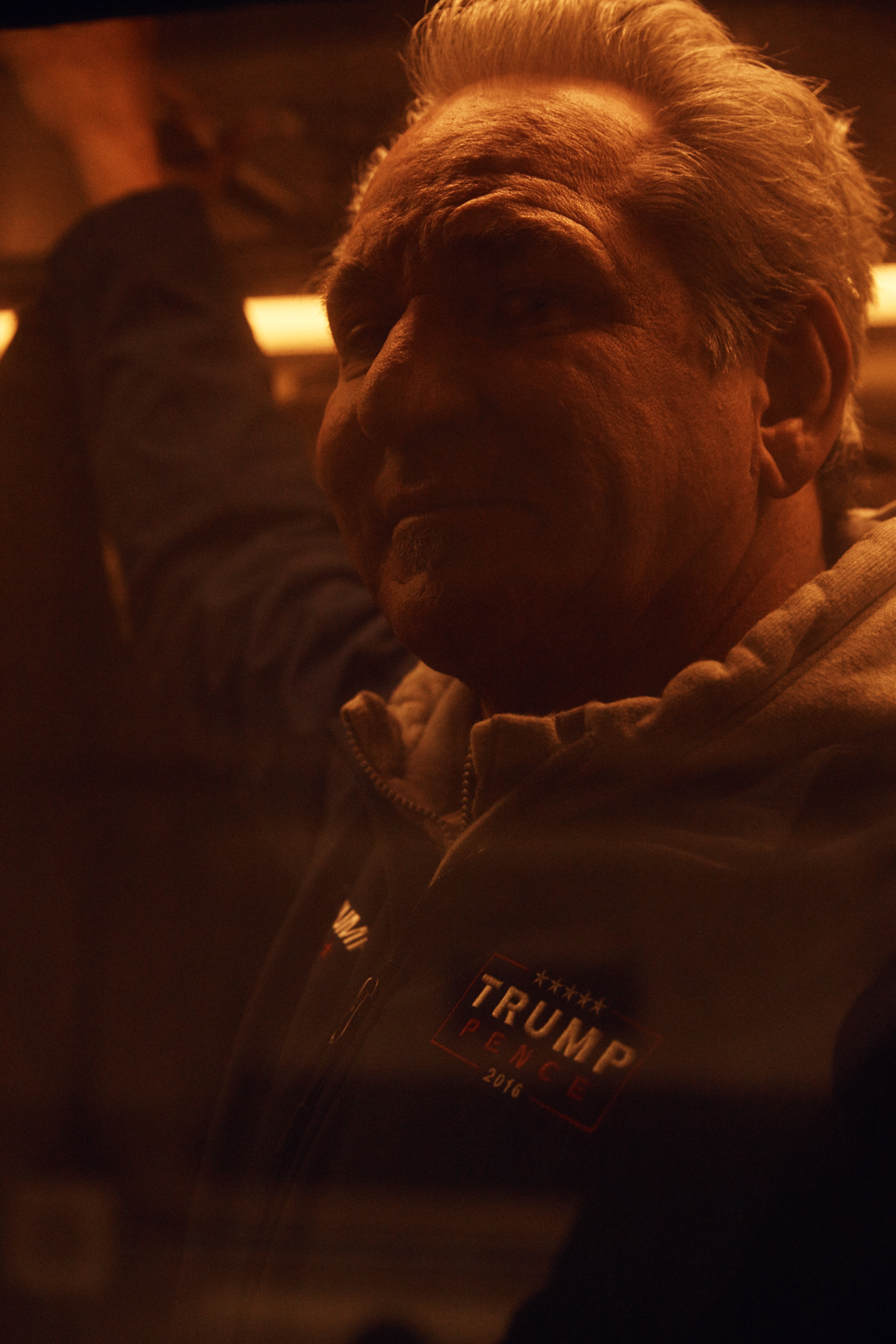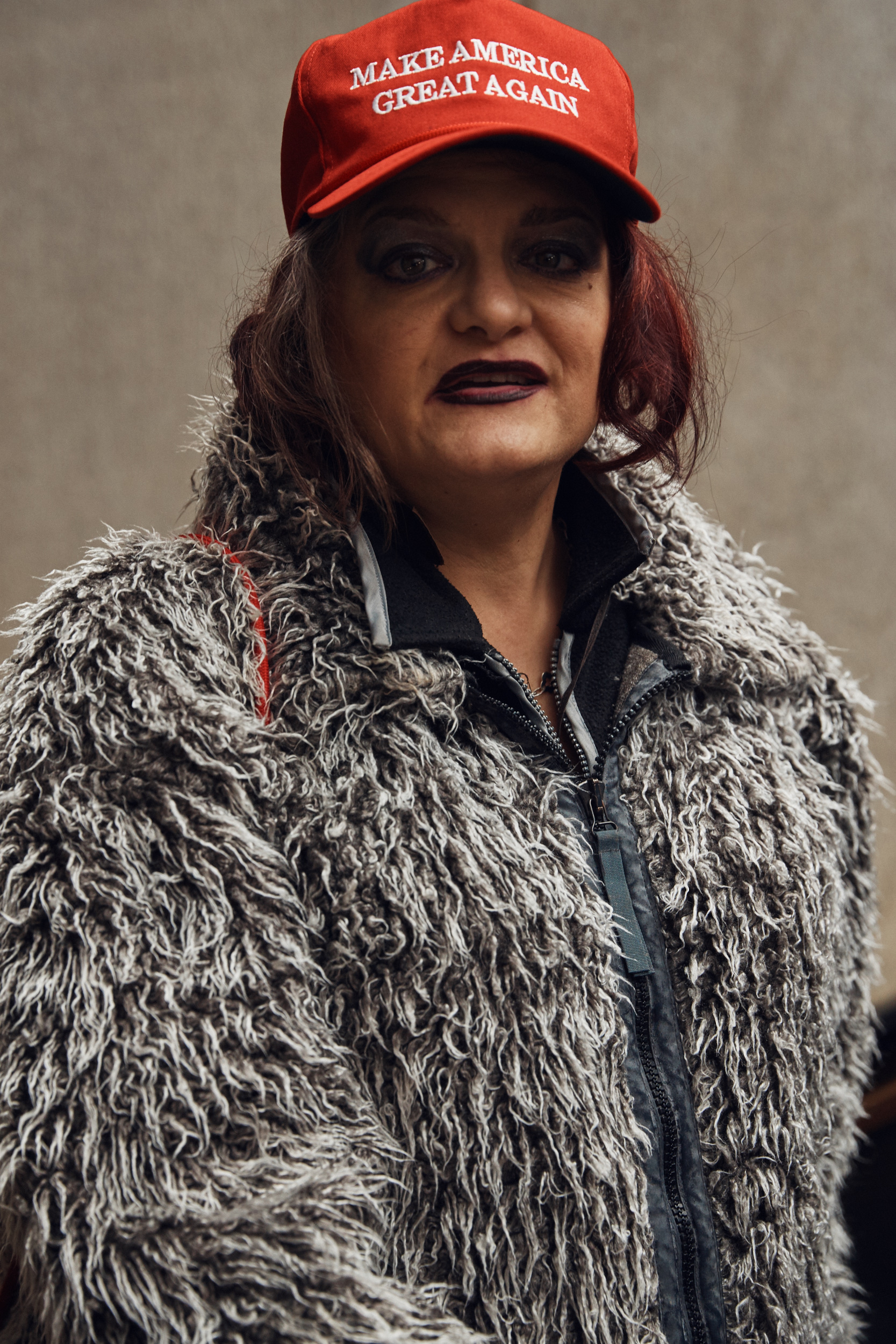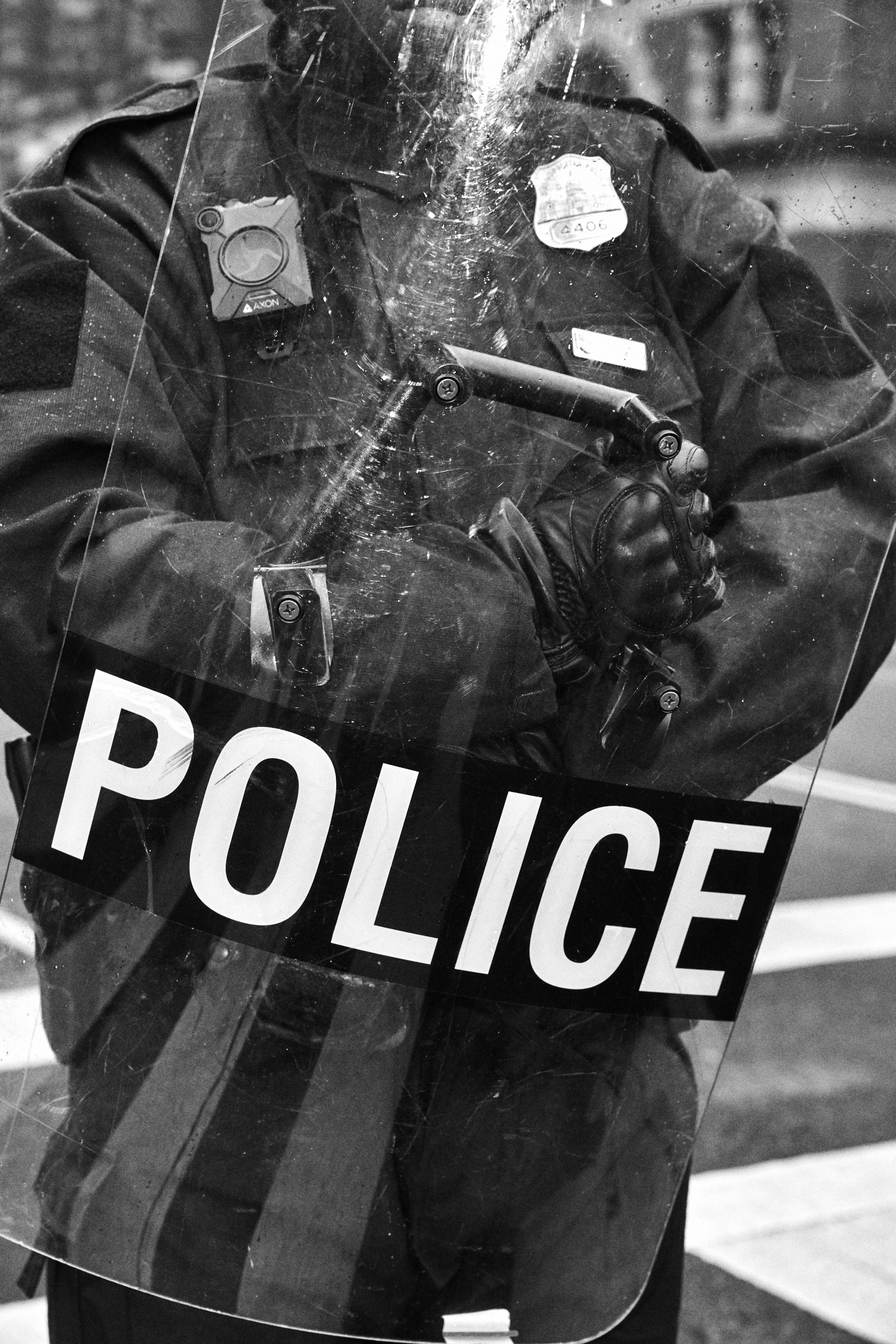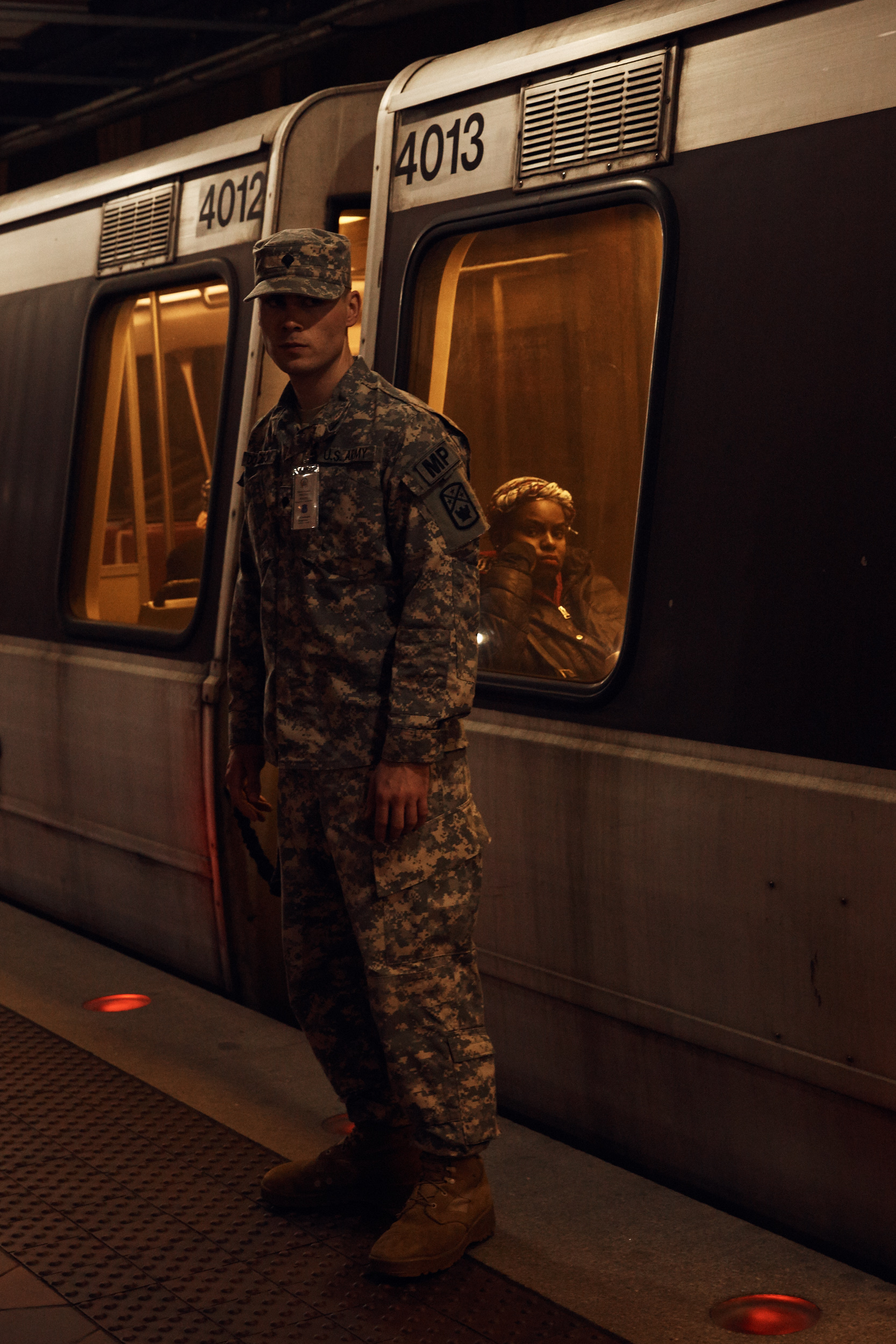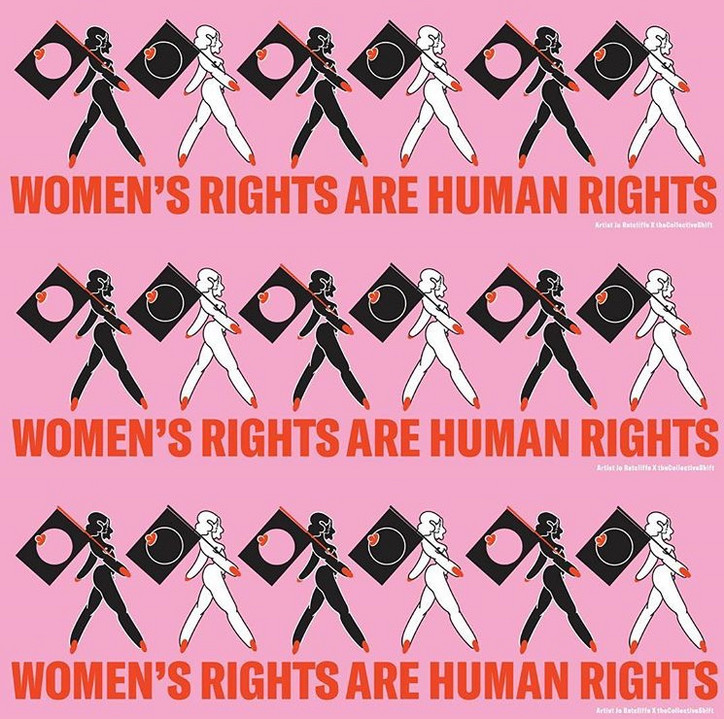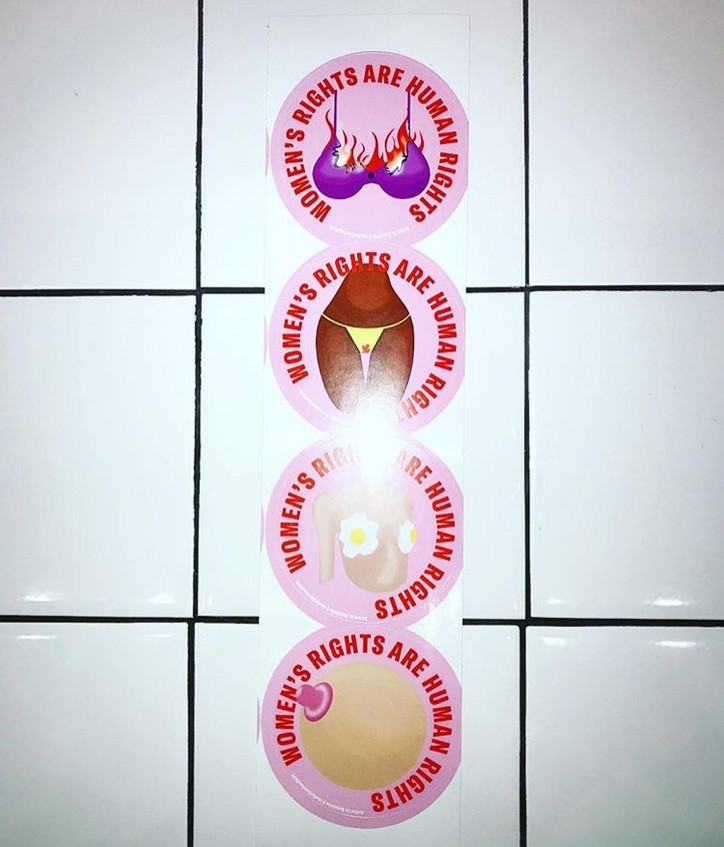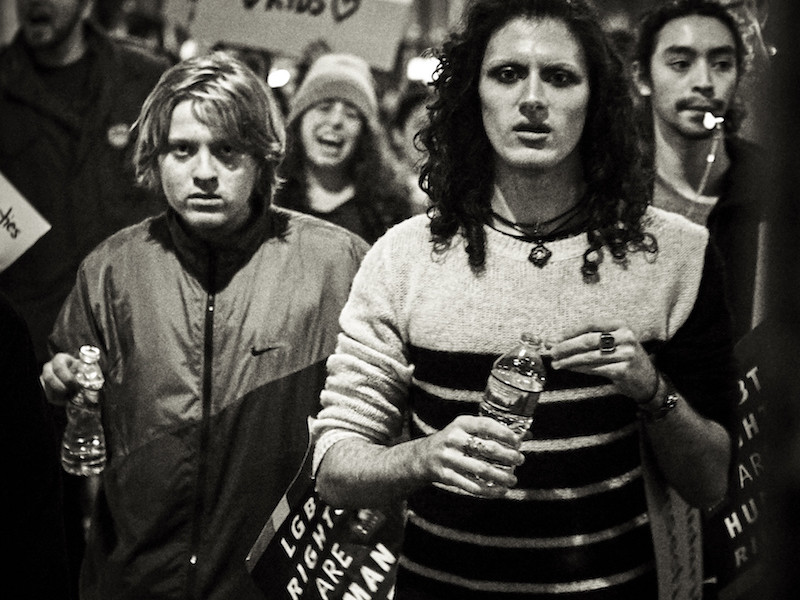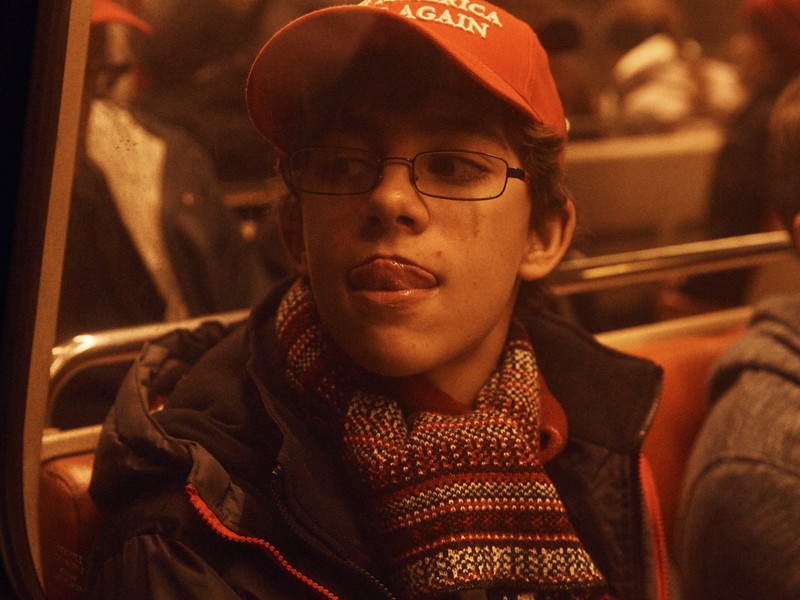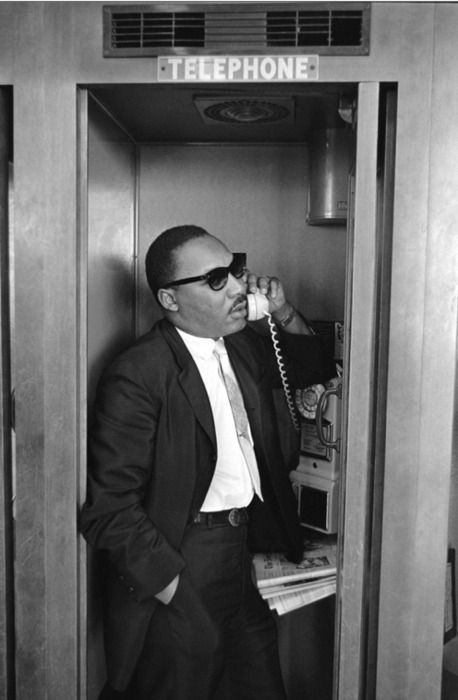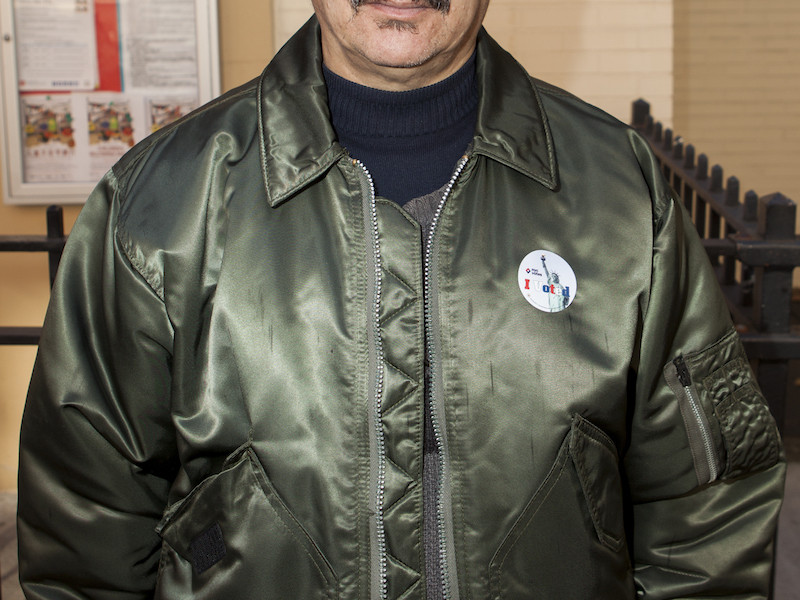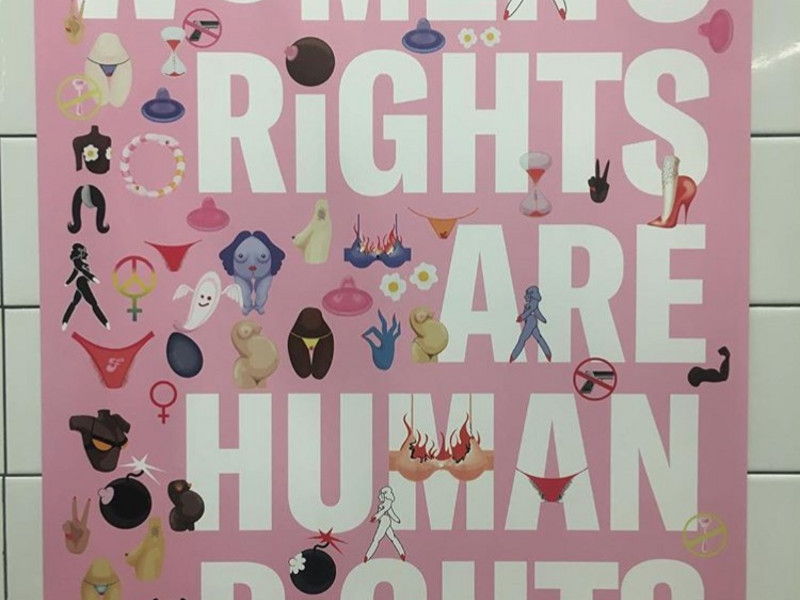What in particular inspired you to take on this project?
It’s just my kind of work. I’ve been working with typography and illustration, the female form and restriction of it for most of my career. It seemed like the right moment to create something. Plus, I am passionate about making changes for young girls and boys, passionate about creating a world where it’s not just women looking to get far in a man’s world. Passionate about creating a world where we have a more easy, open dialogue about sex and sex education.
What does the Women's March mean to you?
It’s a moment for us to show solidarity and to show that people have some kind of power, despite how disenfranchised everyone feels with recent events. I think the whole process should be empowering for those taking part and hopefully set a mood of belief that they can make changes. Just to see the numbers of people and the passion amongst them will be inspiring. Technology can lead to us being self-absorbed or absorbed by the bubble of our lives and networks, and I think it’s that lack of solidarity that probably got us here. So to get out on the streets and be part of something real, tangible and happening in that moment—for most that will be a revolution in and of itself.
What do you think the art and fashion communities should do at this juncture in history? Do you think people in those industries have any kind of responsibility to be political?
If we are talking fashion, then it is of course a brand’s choice. Decisions need to be made for financial reasons, so it’s not as simple as a personal choice. But it is important to make a stand for the things you believe in, and big brands can be very influential. But I don’t think the decision will be exclusive for brands for very long. They are so much a part of our everyday existence and when they communicate how ethical or moral they are, it gives the customer the opportunity to make a more meaningful choice. Given that on the day-to-day most of us have to just get on with our lives, it’s an opportunity for the consumer to feel like they are empowered. More than anything, it’s important for brands to be environmentally conscious. But that also starts with the consumer too. It’s in our power to make or break a lot of big business, we are just under the illusion that we can't. In the current climate, it’s fashionable to be political. I hope it will be a long-lasting trend.
What inspired your designs for the posters and stickers?
I’ve been working on a personal project for a year now, an app called Femojis. And it seemed like a nice way to contribute to the march. The poster became a little more popular than I had envisaged! They’re feminine-inspired emojis. Some are sexual, some are little political, some are a play on historical feminist icons and some are references to historical or biblical references to female figures or icons. They were the perfect icons for creating the poster.
Will you personally be marching?
Yes! I will be marching in London.
Text by Jocelyn Silver
Check out more from Jo Ratcliffe here, and come by the office newsstand at 265 Canal Street, open on Monday and Wednesday from 11 AM-7 PM, Thursday-Saturday from 11 AM-8 PM, and Sunday from 11 AM-6 PM.
